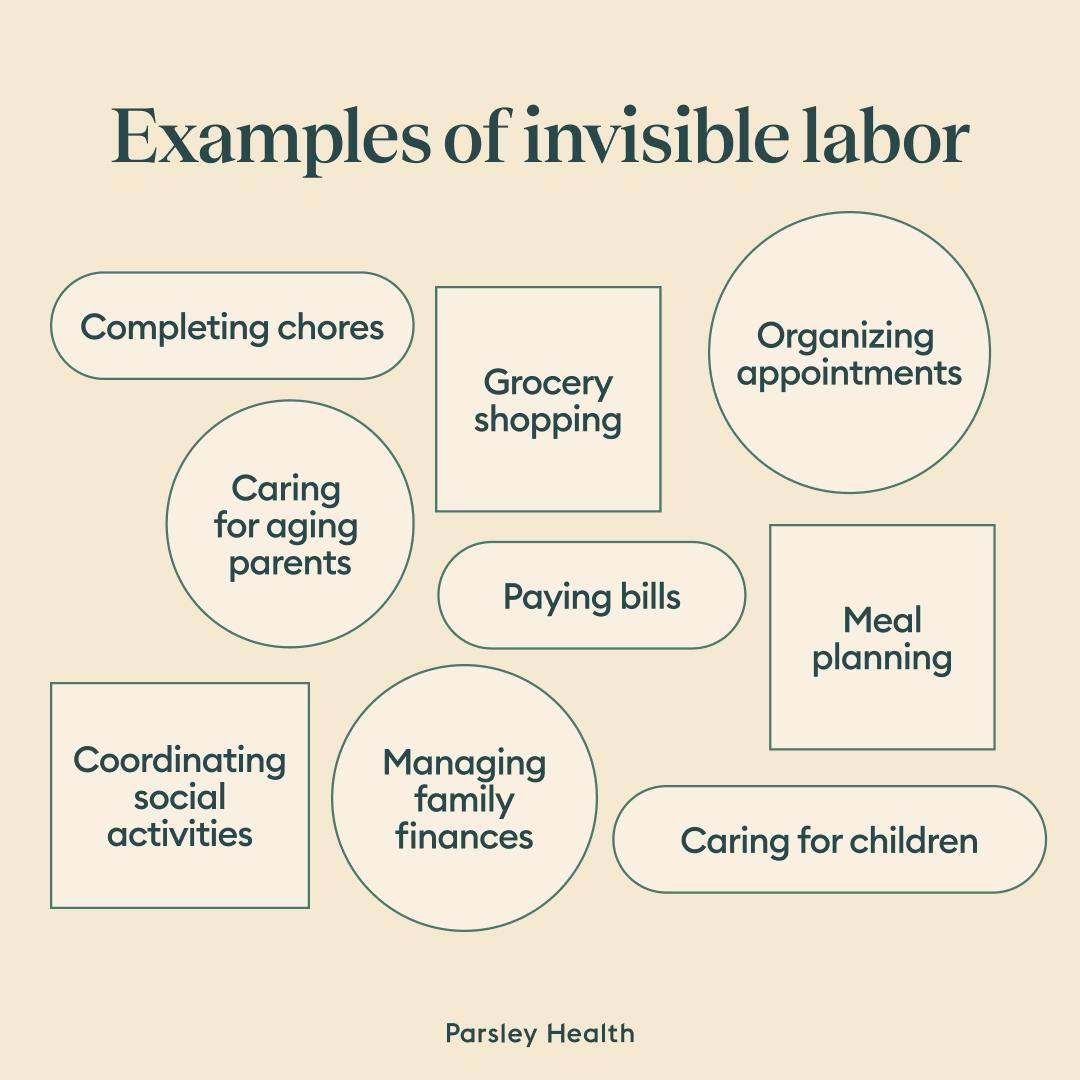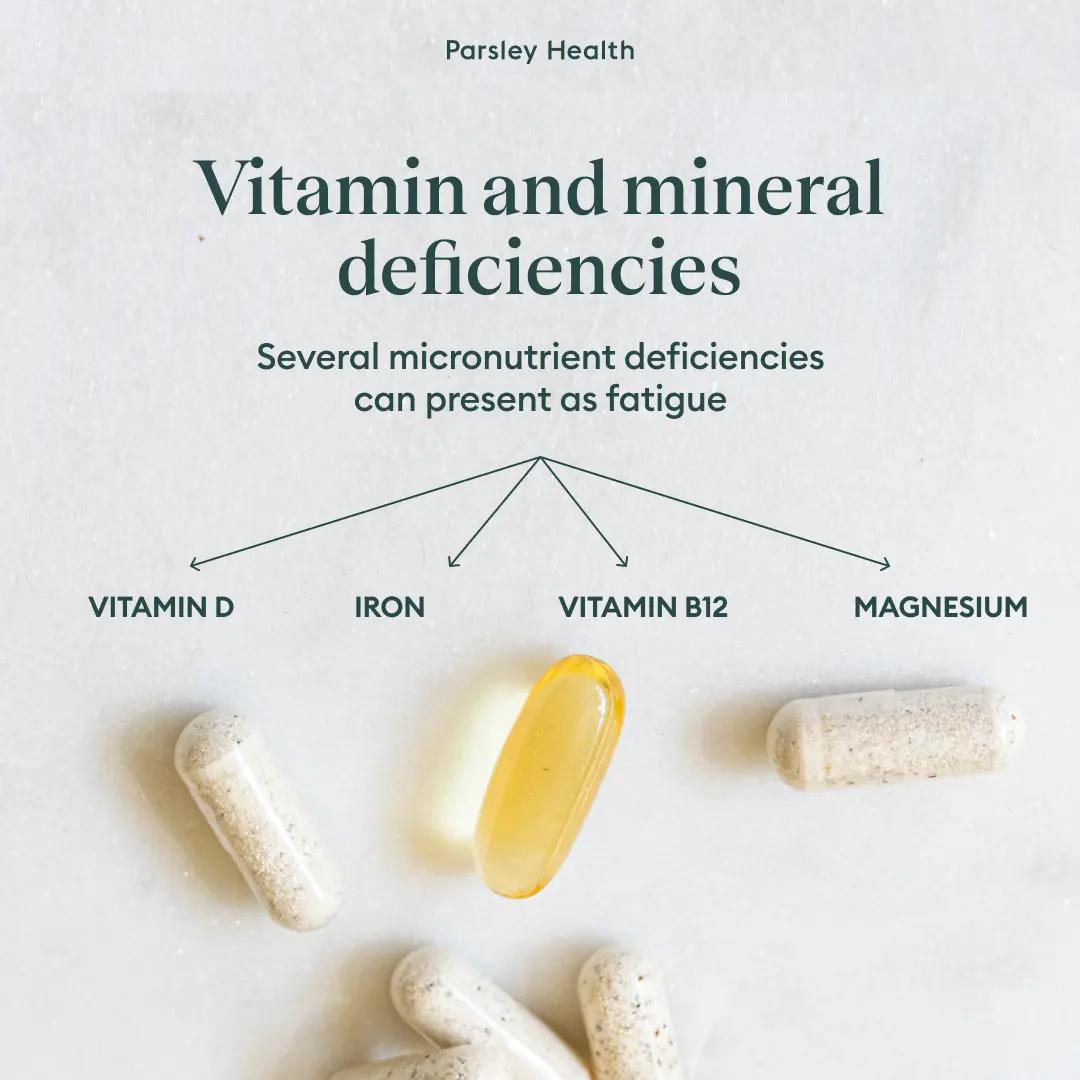Perhaps you know the scenario all too well: You’re feeling relatively energetic for a few days and then, out of nowhere, you feel like you have zero energy to complete tasks, finish (or even start) a workout, or do something fun. Sudden, crashing fatigue is common in people assigned female at birth. So if this is you, you’re not alone.
In this article, we’ll explore common reasons for sudden, crashing fatigue in the female body and what you can do to boost your energy during a slump, when to see a clinician and more.
Understanding crashing fatigue
Research from the CDC in 2023 shows that the percentage of people experiencing fatigue most days in the past three months was higher at every age for people assigned female at birth when compared to those assigned male.
Many factors can cause fatigue. Some can be attributed to lifestyle factors. Others are related to the menstrual cycle, the menopause trajectory, hormone levels, or underlying health conditions. And yet others may be related to psychosocial factors.

Research shows that those assigned female at birth are more likely to perform invisible labor than those assigned male. Globally, those assigned female perform more than three-quarters of unpaid care work, for example.
Invisible labor can include the following
Caring for aging parents and/or one’s partners’ parents
Caring for children
Completing and managing household chores
Coordinating social activities, children’s playdates, and more
Finding lost items for family members
Maintaining household schedules
Managing family finances and paying bills
Meal planning and grocery shopping
Organizing vet, pediatric, and other appointments
Performing emotional labor, such as soothing other family members
Invisible labor can lead to burnout and feeling overwhelmed and fatigued. At the same time, people assigned female at birth may be experiencing a combination of factors all at once that can lead to crashing energy.
Lifestyle factors that exacerbate fatigue
Lifestyle factors can cause fatigue, but the good news is that we can modify these factors to feel more energetic and reduce the chances of feeling sudden crashing fatigue.
“Factors such as sleep hygiene, balanced nutrition, and regular physical activity are crucial in managing fatigue,” says Edward Salko, MD, founder of Personalabs. “Implementing a routine that includes mindfulness practices, hydration, and adequate rest can significantly improve energy levels.”
The following lifestyle factors cause fatigue, but here’s how to modify them.
Inadequate quality and quantity sleep. A lack of sleep or disrupted sleep can lead to next-day fatigue. Prioritize getting at least seven hours of sleep per night and minimizing disruptions. Sound and light pollution in or outside your bedroom can disrupt your sleep cycles and phases.
“Poor sleep wreaks havoc on our circadian rhythm and natural cortisol production, which leads to feeling extreme fatigue and can even influence our mood and metabolism,” says Salma Alsibai, a registered dietitian at Online PCOS Nutritionist.
Poor nutrition. High carbohydrate or sugary foods will spike your blood glucose (blood sugar). When your blood sugar rises dramatically, your pancreas releases an outsized amount of the hormone insulin, which helps get glucose into your cells to use for energy. But that outsized amount of insulin can lower your blood sugar quickly and below your usual baseline, which can then cause a sudden energy crash. This is called reactive hypoglycemia.
You can avoid reactive hypoglycemia by pairing carbohydrates with either protein, healthy fats, fiber, or a combination. These nutrients help slow the absorption of carbohydrates into the bloodstream, keeping blood sugar more stable. Pro tip: Eating protein and veggies before carbohydrates can lead to a blunted blood sugar spike.
Getting adequate protein can also help fight fatigue. This protein calculator can help you determine how much you need per day based on your height and weight. However, working with a registered dietitian can also be of benefit, since you may need more protein than the general recommended amount.
A sedentary lifestyle. A lack of physical activity throughout the day is associated with fatigue. However, in what may seem contradictory, expending energy through exercise will energize you. Exercise has positive effects on how your body manages glucose and insulin and it floods your body with feel-good chemicals.
Aim for about 150 minutes of cardiovascular exercise, such as running, swimming, cycling, walking, hiking, or rowing, per week. Strength training is also crucial. Try to get in at least two sessions per week.
Dehydration. Water is necessary for daily functioning. The more dehydrated you are, the more likely you’ll experience fatigue. The female body needs about 91 ounces of water per day (about 11.5 cups) from food and liquid sources.
Water is an optimal source. Skip the juices or sugary beverages, which can cause energy crashes. If you are highly active or have certain medical conditions, you may need to include some electrolytes to maintain balance. Skip any powders or drinks that contain added sugar. Talking to your clinician for a tailored approach is best.
Stress. Stress is a common contributor to fatigue, and fatigue can also lead to stress. Chronic stress leads to autonomic nervous system dysfunction and alters hormone levels. Find ways that work for you to manage stress. These can include mediation, yoga, exercise, and other activities you enjoy.
People assigned female at birth may also need to evaluate what’s on their life plate and find ways to offload some invisible labor, especially if they’re experiencing an imbalance in the division of labor in their households.
Hormonal causes of crashing fatigue
Some hormonal changes can cause fatigue in the female body. These include those related to the menstrual cycle and the menopause trajectory. If you’re experiencing fatigue for one of these reasons, focusing on the lifestyle factors noted above that can combat fatigue can help.
Premenstrual fatigue
If your period is on the way, you might naturally feel some fatigue. During the luteal phase of the menstrual cycle, which spans the two weeks leading up to your period, fatigue is common. Researchers attribute this fatigue to changes in progesterone levels.
During this phase of the menstrual cycle, your progesterone level peaks and then plummets, almost like the climb and fall of a roller-coaster. Both high and low levels of progesterone have been linked to fatigue.
Experiencing some fatigue or energy changes prior to and during your period is normal. For example, you may notice that you have more oomph for your workouts during ovulation, and then leading up to your period or during your bleed, you may experience a change in your performance. This is common. However, if you’re frequently experiencing extreme fatigue or other symptoms before your period, talk to a knowledgeable clinician.
Menopause fatigue
Menopause is a term for when you’ve reached an absence of a period for a full year. After this milestone, a person is in postmenopause. Leading up to menopause is the transition known as perimenopause, which can span more than a decade.
During perimenopause, your hormones can be erratic, eventually leading to a decline in estrogen, progesterone, and testosterone. All these hormones, and others that are shifting, impact your energy levels, and the sometimes dramatic fluctuations that occur during perimenopause can lead to sudden crashing fatigue.
The menopause transition can also disrupt lifestyle factors, leading to tanking energy. “In a nutshell, we see increased fatigue in menopausal women due to the increase in insomnia associated with this life transition,” Alsibai says. “As women approach menopause, their changing hormones and increased hot flashes and night sweats all lead to more and more sleep disturbances throughout the night.”
If you are struggling with your energy levels during the menopause transition, talk to a knowledgeable clinician who can help you address your symptoms, whether through hormone replacement therapy (HRT) or another option.
Medical conditions that cause fatigue
Several underlying medical conditions may also be the cause of intense or unusual fatigue. Here are a few to consider.
Endometriosis, PCOS, and PMDD
Some medical conditions have a complex interplay with reproductive hormones. These include polycystic ovary syndrome (PCOS), endometriosis, and premenstrual dysphoric disorder (PMDD). These conditions can also lead to fatigue through various mechanisms.
If you have one of these conditions or aren’t sure, talk to a knowledgeable clinician who can help with appropriate treatment options.
Chronic fatigue syndrome
Myalgic encephalomyelitis/chronic fatigue syndrome (ME/CFS) is a serious illness that causes intense fatigue. It makes completing everyday life activities more difficult because of physical exhaustion, extreme lack of energy, and more.
ME/CFS affects an estimated 3.3 million people in the United States. It’s more common in people assigned female at birth but is often underdiagnosed. If you are having intense fatigue, talk to a clinician who can help.
Epstein–Barr Virus
Epstein–Barr Virus (EBV), the virus that causes infectious mononucleosis, can get reactivated and cause intense fatigue. Signs and symptoms also include fever, inflamed throat, swollen lymph nodes, and a rash. If you have these symptoms, be sure to get evaluated.
Post-COVID syndrome
Post-COVID syndrome is also commonly called “long COVID.” The syndrome can occur after someone has contracted the COVID-19 virus. Even after recovery from the acute illness, people may experience lingering symptoms, including extreme fatigue. If you’ve recently had COVID or are unsure and are experiencing fatigue or other lasting symptoms, talk to your doctor.
Heart disease
Extreme fatigue can be an early symptom of heart disease, especially for people assigned female at birth. Sudden onset of extreme fatigue may signal an impending heart attack. If you are experiencing new or persistent fatigue, don’t ignore the symptoms.
Adrenal fatigue
Adrenal fatigue is a myth, not a medical term. Instead, some people may experience adrenal insufficiency.
“Adrenal insufficiency is an official diagnosis referring to the inability of the adrenal gland to produce adequate levels of cortisol,” Alsibai says. “It can be diagnosed through blood work. ‘Adrenal fatigue’ on the other hand is a relatively new term people use to describe feeling burnout. It cannot be diagnosed.”
Hypothyroidism and hyperthyroidism
Thyroid disease affects more people assigned female at birth than those assigned male. Fatigue is a common symptom of both hypothyroidism (underactive thyroid) and hyperthyroidism (overactive thyroid). Several factors can affect the thyroid gland, including pregnancy and the menopause transition. If necessary, a clinician can order tests to determine how well your thyroid is functioning.
Vitamin and mineral deficiencies
Several micronutrient deficiencies can present as fatigue. Your clinician can check your levels, help determine whether you have a nutrient absorption issue and more.

Vitamin and mineral deficiencies that can lead to fatigue
One of the most fatigue-causing of these is iron deficiency, which can lead to iron deficiency anemia. Iron deficiency anemia means your body doesn’t have enough iron. Therefore, it has difficulty producing healthy red blood cells and sending oxygen to your organs.
Heavy periods can cause iron deficiency and iron deficiency anemia. Other causes include extreme endurance activities, underlying conditions, gastrointestinal issues that may cause nutrient malabsorption (including celiac disease), and genetics.
If you’re experiencing sudden crashing fatigue, your clinician can evaluate your micronutrient levels.
Sleep apnea
Sleep apnea is a serious sleep disorder. If you have this condition, your breathing starts and stops while sleeping. A common symptom of sleep apnea is next-day fatigue. Sleep apnea is highly prevalent for people assigned female at birth, but it often remains undiagnosed. This is because the condition has “historically been considered a male disease,” according to research.
If you frequently experience fatigue, even after seemingly getting enough sleep, or if your partner tells you that you snore, be sure to get evaluated. If left untreated, sleep apnea can lead to serious chronic health issues.
FAQ
Why does my body feel weak and tired all of a sudden?
Your body may feel weak and tired suddenly because of a blood sugar crash, a hormonal shift, etc. Review the causes in this article to learn more.
What causes sudden crashing fatigue?
Sudden crashing fatigue can happen for several reasons, including not getting enough sleep, what you’ve recently eaten, whether you’re about to get your period, whether you’re going through the menopause transition, and whether you have an underlying condition.
What are the 7 symptoms of chronic fatigue syndrome?
Seven common symptoms of myalgic encephalomyelitis/chronic fatigue syndrome include severe fatigue in general, extreme exhaustion after physical or mental exertion, brain fog, dizziness when switching from lying down or sitting to standing, muscle or joint pain, sleep issues, and sensitivity to light, sound, and smells.
Takeaway
Sudden crashing fatigue is a common symptom that can occur because of lifestyle factors, hormonal shifts, underlying conditions, vitamin and mineral deficiencies, and more.
More people assigned female at birth tend to experience fatigue than those assigned male at birth. This may partially be because people socialized as female often perform more invisible labor. However, the female body also experiences more hormonal shifts than the male body.
If you’re experiencing sudden crashing fatigue that’s interfering with your everyday activities, be sure to seek an evaluation by an experienced clinician. Clinicians at Parsley Health can help you get to the root cause and recommend appropriate treatments that will alleviate fatigue and boost your overall energy. Reach out for a free consultation.


